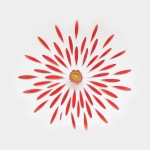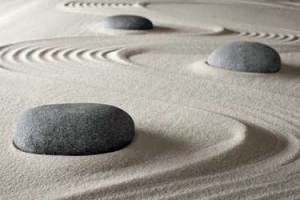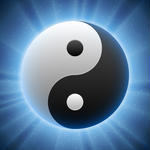Ojai Class Schedule
contact me for the current class schedule
 Qigong
Qigong
Qi (also chi, ch’i, ki) is the Chinese name for the universal life force or vital energy that flows around and through our bodies, animating our cells and keeping us healthy. It is essentially the same as ‘prana’ in yoga. Though universal qi is infinite, there are many methods to strengthen our access to it and learn to direct it for the well being of ourselves and others.
‘Gong’ means practice or work. Any practice that works to increase or balance the flow of qi can be called a qigong. It is said that there are 10,000 forms of qigong, which refers to a limitless number, so there are infinite ways to move and strengthen qi. This means that there is a qigong practice suited for everyone, even for people too ill to practice other forms of exercise. Qigong is practiced in Chinese hospitals and is an important part of traditional Chinese medicine.
There are qigong practices that require nothing more than lying down, breathing and directing the qi flow with your mind. There are specific gongs for specific illness, such as cancer, high blood pressure, or digestive problems. There are slow gongs, fast gongs, short gongs, long sequence gongs, shaking gongs and gongs that use sounds. There are spontaneous gongs where you allow your body to do whatever it feels like, trusting that the intelligence of your system will lead you to harmony. The important thing is to find those practices that work best for you.
 What is Tàijíquán (T’ai Chi Ch’uan)?
What is Tàijíquán (T’ai Chi Ch’uan)?
Tàijíquán is a martial art of precise, choreographed movements. It is commonly practiced slowly so that the practitioner can eventually master the flow of qi through the body. For this reason it can be considered a form of qigong, but traditional qigong practices have been primarily developed for health and harmonizing the body and not as martial arts.
To avoid confusion, the ‘chi’ commonly used in Tai Chi is the old transliteration of the Chinese Pinyin word jí, which means “ultimate” and is distinct from “qi” or “life force.” “Tàijíquán” (the Pinyin spelling) translates to “supreme ultimate boxing.”
 Where does Qi come from?
Where does Qi come from?
We are all born with a given qi constitution inherited from our parents. This gets consumed through the course of our life and there’s not much we can do about this. But we also receive qi from food, water, air and sunlight, and it is possible for other living beings to transmit qi to us as well. Our lifestyle can add to or diminish our qi field considerably. We all know what it feels like to be energized by being in a qi-filled natural environment such as a forest or by the ocean. Qi cannot circulate in an unrelaxed body so the more relaxed we are the stronger our qi will become.
 Mind Moves Qi
Mind Moves Qi
The Taiji classics say, “First in the mind, then in the body.” Qi can be directed by intention and willpower. Even when exercise is impossible, we can still practice breathing into the navel area. This “dantian” is our qi storehouse, and focusing on it can help build our qi reserves. Plus it’s a good way to calm the mind as it encourages energy to flow downwards out of our heads. Because energy follows attention, we can use our minds to clear blocked pathways, increase energy flow to specific areas and nourish ourselves physically and emotionally.
 Balancing Yin and Yang
Balancing Yin and Yang
The yin/yang symbol represents the transformational processes of life. All things contain their opposite and life is a continual flow between these forces. The practice of qigong helps us to be both strong and soft, expanded and grounded, active and receptive. By opening the crown of the head to ‘Heaven’ (the cosmic qi field, or spirit) and rooting the feet in ‘Earth’ (form, matter), we are balancing and stabilizing the opposites within ourselves.
Traditional Chinese medicine (TCM) also works with the qualities of the 5 elements (wood, fire, earth, metal, water) to maintain harmony of not only our bodies and organs but our emotional and mental energies as well. The TCM system is quite elegant, elaborate and exquisitely subtle, but it is not important to have a full understanding of it in order to benefit from qigong.
 Qigong is the perfect exercise for chronic health issues
Qigong is the perfect exercise for chronic health issues
When there is deficient qi it cannot circulate well through the energy pathways (meridians) of the body. The inner organs depend on the flow of sufficient qi to do their jobs properly. Stagnant qi can result in pain and many other symptoms. Specific qigong postures and movements help us release stagnant or toxic qi, and there are also gongs that help us pull strengthening universal qi into our systems. While many forms of exercise are not possible for people with some chronic illnesses, qigong is slow, gentle and integrative. Even just a few minutes of practice can trigger the relaxation response and lower stress levels. Many gongs focus on strengthening the kidneys/adrenals which is very important for reducing stress and strengthening the immune system. Practices to increase digestive ‘fire’ can also be extremely helpful.
Qigong embodies the Taoist idea: “I am in the Universe. The Universe is in me.” Because illness can be isolating, qigong helps to relax any sense of separation by connecting us to the universal life force. When our bodies are chronically uncomfortable we tend to disconnect from them. Qigong invites us to connect our breath, feelings and body sensations. The more embodied and grounded we are, the more we can receive qi from the earth, and the more open and relaxed we are, the more we can receive the cosmic qi all around us.

2 Responses to Taiji and Qi Gong Classes